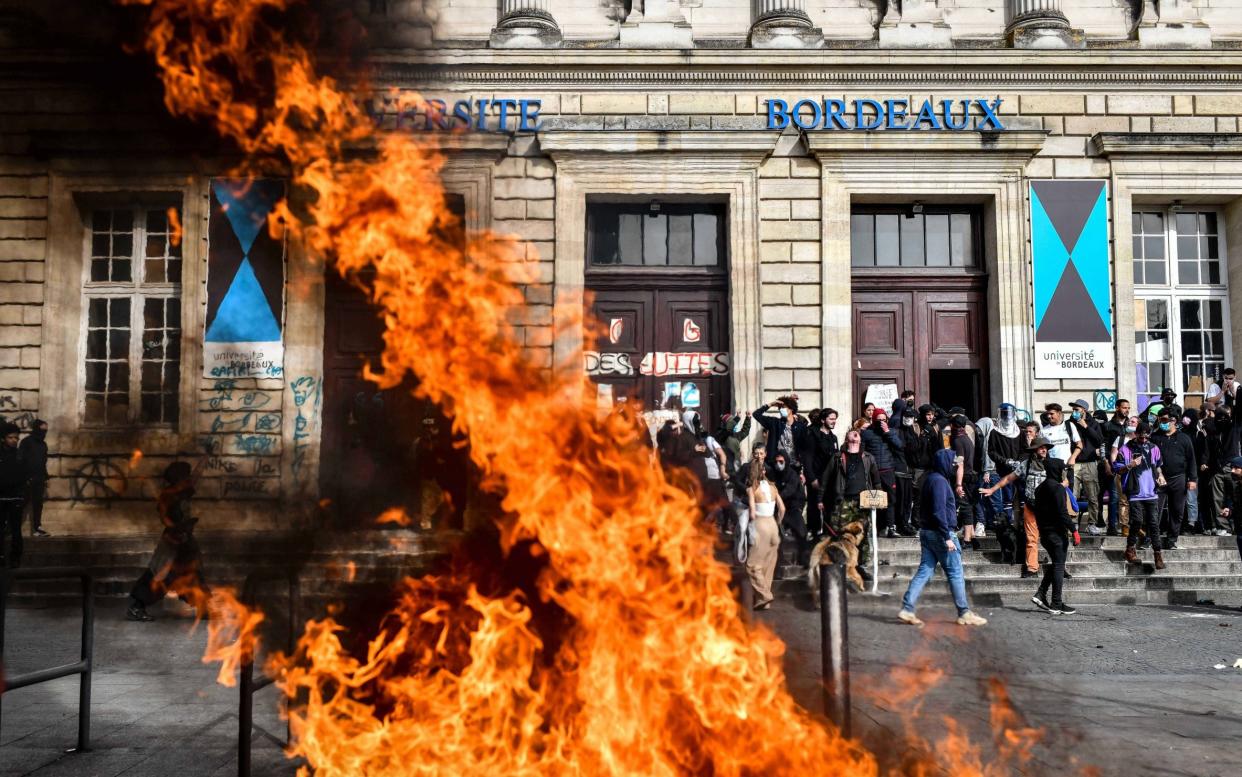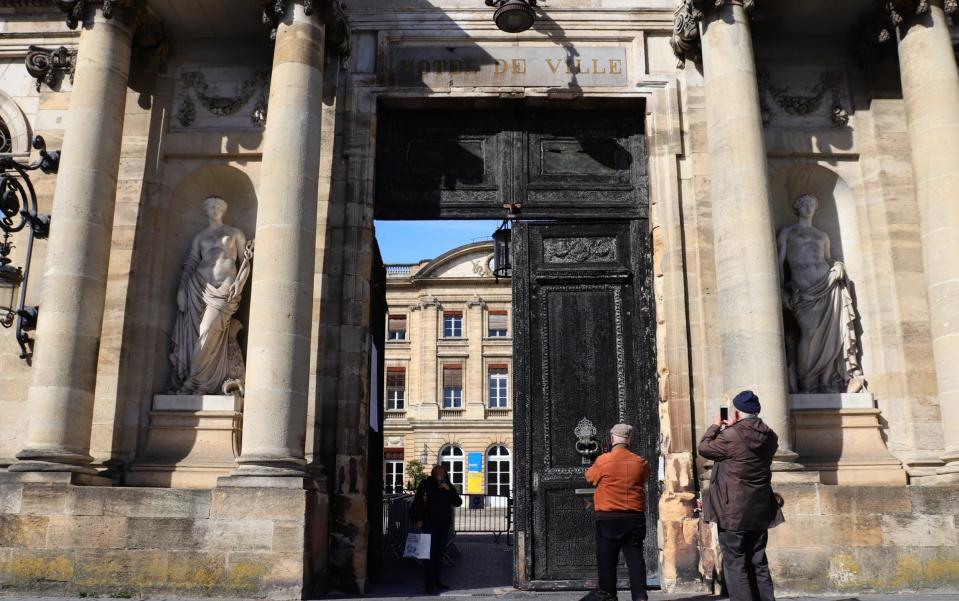On the streets in Bordeaux: ‘It pains me to see our city on fire but we need to take a stand’

A crowd has gathered outside Bordeaux’s City Hall. People are taking pictures of the walls and doors, which were set on fire last week. They are still standing but now blistered and black. Rony Bertrand, 60, shakes her head in dismay at the damage done to the building, which was built in the late 18th century and survived the French Revolution.
“It’s become so normal now that things are being destroyed, it sickens me,” Bertrand says. “Who’s going to pay for this? The people of Bordeaux are, that’s who.” Philippe Rouchon, 56, who works in fire prevention, says “it pains me to see this, my job is to prevent fires” – but he understands the protests, at President Emmanuel Macron pushing through a rise in the pension age to 64.
Pictures of fires in the southwestern port city, lit in protest at France’s retirement reforms, have been shared around the world – and stopped King Charles visiting on his first state visit as monarch. As well as the City Hall blaze, there was a video of a couple having a glass of wine outside the traditional Pub Saint Aubin restaurant on March 23, apparently unfazed by the roaring bonfire started by protesters nearby. It’s a video that was shared by millions of viewers, suggesting that the French have become so impervious to tumultuous protests, they won’t let a petty bonfire keep them from the tradition of having a drink.
“Protests have become more and more frequent, but life goes on,” says Gaetan Hadman, manager of Pub Saint Aubin as he serves me a Caesar salad. The violence has died down. “Protests won’t stop people from toasting together. Customers were making do. After all, our location is a popular gathering place for protesters.”
There were more protests on Tuesday, with around 60,000 people on the streets and tear gas fired. It was meant to be the day that King Charles and the Queen Consort were there, taking a tram ride to the city centre and visiting a canelé pastry shop. But striking tram drivers said they refused to drive him and threatened to block the tracks. Nurse Nathalie Bonoto, 48, who attended Tuesday’s protest on her day off, was nonplussed about the King’s visit to her city and says the reception of the British monarchy should be the least of the country’s priorities: “For me, it would have been a provocation, this dinner at Versailles with our president. We were happy it was cancelled. The French, like the British, are suffering from the effects of inflation. The monarchy is an institution of privilege and given the financial difficulties that people are experiencing, it would have been seen as a provocation.”
The latest protest marked the 10th day of strike action in France since the government unveiled its unpopular pension reform proposal in January. By narrowly surviving a vote of no-confidence last week, the government was also able to adopt the pension reform bill.
But like the thousands of protesters who showed up Tuesday in Bordeaux, Philippe Rouchon, 56, said the fight’s not over, citing the nationwide uprising of 1995 which forced then prime minister Alain Juppé – also the former mayor of Bordeaux – to withdraw pension reforms under Jacques Chirac following widespread protests: “We have hope that the law will be withdrawn. There are precedents.”

Bordeaux’s mayor Pierre Hurmic, a member of the Europe Ecology – The Greens party, draws a distinction between violent protests and normal opposition. “I am shocked and saddened by the vandalism,” he has said. “This violence is an attack on the people of Bordeaux and I call on the authorities to put an end to it. Abuse and vandalism are totally unacceptable in a democracy.”

Over the weekend, a 25-year-old man was indicted on suspicion of throwing a burning rubbish can against the door of the town hall and remanded in custody and three others appeared in court.
Laura Le Comte, 19, was also at City Hall taking stock of the damage. “Frankly, it’s sad to see that we’ve come to this point,” she says. “For one thing, it tarnishes the movement, and for another, we’re starting to target institutions which is not the goal.”

Le Comte was en route to the demonstrations on Tuesday to protest on behalf of her parents and grandparents, but also to express her anger at Macron’s governance.
“The biggest reason I took to the streets is because of the contempt that the government and the president have towards the population and young people,” she says.
“I fear we’re shifting to a different form of regime, other than democracy and I think it’s important to make our voices heard.” She laments how images of the protests may have harmed France’s reputation in the world.
“We’re giving a rotten image of France, and I find that a shame,” Bertrand said. “People are afraid to come, they think we’re a country in a civil war, but that’s not the case. We’re a beautiful country but we’re sending a terrible message.”

 Yahoo News
Yahoo News 
